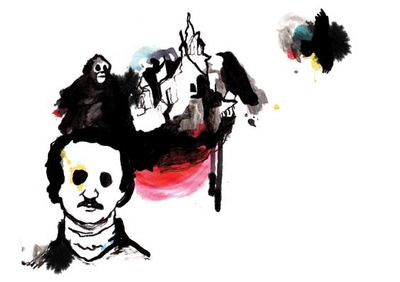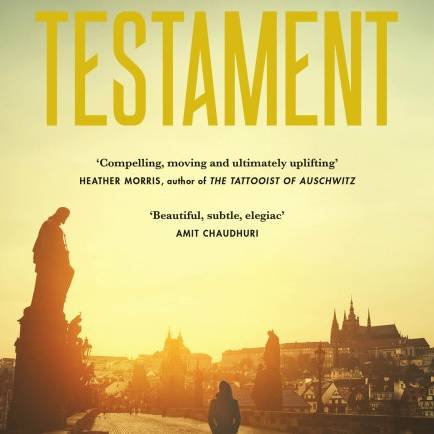Edgar Allan Poe turns 200 this year, which makes it a good time to rescue his stories from the high-school curriculum and the attention of second-rate horror film-makers. For Poe contains a great deal to interest the rationalist. He doesn't simply castigate rationalism, but perverts it to reveal and celebrate the essential strangeness of existence.

What Poe tells us, through both his fiction and his life, is that there is a shadow flourishing in every person, in every city and in every era. The Imp of the Perverse, as he called the impulse in the story of the same name, is the leap of logic, the reflex of both rebellion and ruin. It cannot simply be added on to a rational framework, but necessarily undermines it. Poe is sceptical, in his story (which takes the form of a philosophical essay), of "faith in Revelation or faith in the inner teachings of the spirit..." and of the then current pseudoscience of Phrenology. The tendency to operate counter to reason or self-interest had gone unarticulated because it was too obvious. Too obvious until Poe scouted out the limits of reason and there found a perfectly secular devil that none of us can resist. He brought home the Imp of the Perverse like a stray dog.
Why else should humanists sign up with this guy? For one thing, it'll keep you all from being surprised when things go pear-shaped, as they do. Joyce Carol Oates sums up the utility of the Gothic very well when she writes: "There is a profound difference between what appears to be and what is; and if you believe otherwise, the Gothicist has a surprise for you. The strained, sunny smile of the Enlightenment - 'All that is, is holy'; 'Man is a rational being' - is confronted by the Gothicist, who, quite frankly, considering the history and prehistory of our species, knows better."
Further, Poe modernised the Gothic. Gothic literature was already hoary, ripe for mocking, in Poe's era. The original Gothic impulse was an anti-Catholic one - lustful priests and outrageous spectacles - with plenty of abject attraction to the pre-Reformation world mixed in. The Gothic wasn't so much a reaction to the Enlightenment as it was a complement to it. Now that the Reformation had broken the hegemony of the Catholic Church, the rational Protestants didn't celebrate their victory, they mourned the passing of the world of the supernatural. They now believed in an ever more distant God, one who was more of a workplace manager than a wrathful father. In the same way, Poe was fascinated by the rational and the humanistic, and the hard limits the rational man ran up against in trying to navigate the post-religious world.
In Poe's detective stories, the rational, though useful, ultimately falls short. In "The Murders in the Rue Morgue", Dupin declares: "The Parisian police, so much extolled for acumen, are cunning, but no more. There is no method in their proceedings, beyond the method of the moment . . . The results attained by them are brought about by simple diligence and activity. When these qualities are unavailing, their schemes fail . . . [T]here is such a thing as being too profound. Truth is not always in a well. In fact, as regards the more important knowledge, I do believe that she is invariably superficial."
The police attempt to find a motive for the murder, while Dupin sticks with physical facts: windows and nails, tufts of hair, and witnesses who all heard different foreign languages, inarticulate and angry. Not only did the police not solve the crime, their humanistic method - asking what might make man commit an inhuman act - was a simple category error. They could not solve the crime in this way. Though billed as a tale of ratiocination, Dupin's tight focus on the known facts of the crime and the locked room in which it happened does not lead inexorably to the elimination of the impossible and the declaration of the inevitable - it must have been a razor-wielding orangutan with a guilty conscience! Instead, the detective makes massive leaps of logic, as indeed he should have to in order to resolve the mystery.
Poe abandoned ratiocination soon after developing it. "The Mystery of Marie Rogêt", billed as a sequel to "Rue Morgue", has no ending so neat as an armed ape who happened to wander into some wealthy woman's sitting room. In this story, Dupin determines that Rogêt - whose fictional murder shares many similarities with the real-life murder of Mary Rogers in Hoboken, New Jersey - must have been killed by someone with access to a boat. Find the boat, find the murderer. And Poe believed that he was really on to something, even if it was just a deep understanding of the sensationalism of the newspaper market of the era, and the Hand of God.
Literally, he, as author, intrudes upon the story to discourse on the real and the ideal: "... in what I relate it will be seen that between the fate of the unhappy Mary Cecilia Rogers, so far as that fate is known, and the fate of one Marie Rogêt up to a certain epoch in her history, there has existed a parallel in the contemplation of whose wonderful exactitude the reason becomes embarrassed. I say all this will be seen. But let it not for a moment be supposed that, in proceeding with the sad narrative of Marie from the epoch just mentioned, and in tracing to its denouement the mystery which enshrouded her, it is my covert design to hint at an extension of the parallel, or even to suggest that the measures adopted in Paris for the discovery of the assassin of a grisette, or measures founded in any similar ratiocination, would produce any similar result."
Reason is powerful as there is no such thing as coincidence; the absence of coincidence is virtually if not specifically a supernatural phenomenon. Poe's dark Romantic vision of the universe doesn't just exploit or celebrate crime, but also hints at an alternative method of comprehending the symmetry of the universe. The "ideal" murder of Marie Rogêt is sussed out by the powerful imagination of Dupin; then in another presto-chango trick Poe puts himself in the story as the imaginative originator of Dupin ... so that he may make a comment upon the real murder of Mary Rogers.
If Poe's attempt at rationality sounds like so much gobbledygook, and if his view of human nature at best deals with the statistical outliers - the obsessed and the insane - it's worth noting that the author has retained a literary reputation and is even taught in American grade schools as part of basic literacy training because the themes continue to resonate. When oppressed, even by perfectly reasonable and rational constraints, like the sort of laws and social norms seen in liberal democracies, we revolt. Consequences be damned.
We still live in Poe's world. We're still plagued by and obsessed with absurdities and outrages, still hungry for revenge and retribution, still just trying to figure out why horrible things happen. The ordinary humanistic answers - poverty, society, improperly articulated notions of citizenship or ethics, power - are too often a cold comfort. The desire for progress and human flourishing ... well, nobody at this late date can deny that unintended consequences are the very least of the problems with progress and human flourishing.
Poe's own life was a losing battle against the demon futility, a war traceable in the very geography of the United States. There's a plaque in Boston, a cottage in the Bronx, a building in Philadelphia that has gained the status of National Historic Site, the grave in Baltimore and a museum in Richmond, Virginia. But Poe isn't a George Washington figure; there are a ton of surviving Poe residences and signposts simply because Poe moved around a lot in his adult years, running from debts, and to one bad neighbourhood after another, thanks to the failures of his various publishing schemes and the usual economic dramas of life on Grub Street. Poe attempted the impossible - to make a living as a writer and editor in the United States during an era when English-language publishing was dominated by the United Kingdom.
Poe wanted to write, to marry, to be seen as a man of letters and honoured for his creativity. Despite Poe's genius and the flashes of public recognition he received, he was never anything more than a genteel bum during his own life, and an incorrigible troublemaker. Poe picked fights with Longfellow, plagiarised, and used both non-bylined columns and pseudonyms to review his own material. Indeed, Poe once even attacked himself under the name Outis ("Nobody") in order to further his campaign against Longfellow. Poe's travels up and down the crooked little vein of America were fuelled by the most practical of issues: he couldn't pay the damn rent. He drank heavily, scribbled frantically to keep dimes and dollars flowing in, and lurched from one enterprise to another, none of which cemented his income or his fame. In short, Poe was a loser and a lowlife. A genius, yes, but these other things as well. As is so with all our geniuses, all of our heroes.
It's so easy to forget this today, given that Poe is taught rather than read, and nothing transforms the transgressive into the canonical like posthumous acclaim. Humanists simply do have to deal with the language of transgression. Poe wrote a map for the future, two centuries ago. It is social transgression that is one of the motors of social progress. Yesterday's perversities are today's human rights. Today's outrages are tomorrow's dry facts of history. And in the same way, today's freedoms can become tomorrow's oppressions. And the rationality of the moment can finally be understood as the madness of an era. Perhaps at this late date we might finally accept that "just following orders" or "following one's principles" can lead to calamities as great as any sort of disobedience. Defiance, even when crude and driven by the darker urges, can be liberating. As the Imp himself said, "But why shall I say more? To-day I wear these chains, and am here! To-morrow I shall be fetterless! - but where?"
Illustration by Sophie Kern

